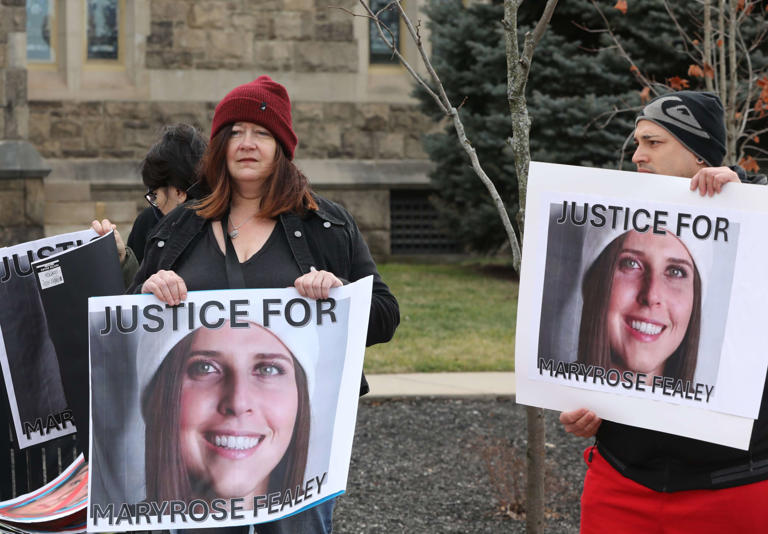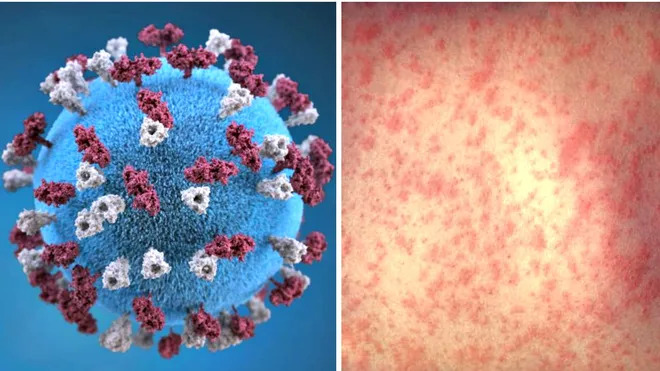
The family and friends of Maryrose Fealey say they’re devastated by a recent court ruling in which the man charged with murdering the Somerville anti-drug activist was deemed mentally incompetent to stand trial.
After hearing testimony from three psychiatrists who examined David C. Shroitman, Superior Court Judge Peter J. Tober found the defendant suffered from severe mental illness and could not participate in his own defense.
The judge committed Shroitman, 28, to the Ann Klein Forensic Center in Trenton for further evaluation – dashing the hopes of family and friends who believe the defendant is mentally well enough to stand trial.
“I think he’s competent, and I’d like to see him put in prison for the rest of his life,” said Janet Pizzelli, the slain woman’s mother who attended the April 3 hearing.
Pizzelli, who is battling breast cancer, said she may not have long to live. Convinced that Shroitman killed her daughter, Pizzelli wants a trial – as soon as possible.
Pizzelli points out that Shroitman had a full-time job and lived by himself as evidence of his mental competency.
“I would like to them bring him to trial before I die,” she said. “I’d like to be there while I still have the strength.”
Pizzelli says her battle against cancer, which has confined her to a wheelchair, is “nothing” compared to what she’s going through with the legal system. “Our family will never get over this,” she said. “There will always be someone missing at my table.”
The slain woman’s father, Jim Fealey, said he planned to meet with the Somerset Prosecutor’s Office this week to discuss an appeal.
“I thought the judge would render a different decision,” Fealey said.
A spokesman for the Somerset Prosecutor’s Office confirmed the judge’s decision but otherwise declined comment. Shannon Dolan, attorney for Shroitman, did not respond to request for comment.
Shroitman, a Somerville resident who went to high school with Fealey, is accused of stabbing the young woman 37 times outside her North Bridge Street apartment on the night of Jan. 30, 2024.
According to the arrest affidavit, Shroitman became a suspect “by word of mouth” on the night of the homicide. On surveillance video, police spotted a man in a gray sweatshirt with heavily cushioned sneakers and wearing a black gaiter to cover his face.
Fealey, 27, had a big, think-positive presence in tightly-knit Somerville. A Rutgers Business School graduate, she quit her job with the U.S. Navy to focus on helping addicts in recovery.
Her brother, Ian, had battled opioid addiction. Fealey produced a documentary about the struggle, then started her own non-profit, 4TheYoungerMe, which was just getting off the ground when she was killed.
According to the arrest affidavit, Shroitman initially refused to talk to detectives when they visited him at a business in Bridgewater on Feb. 2, 2024, three days after the murder. But they noticed a white garbage bag slung over the driver’s seat and a black gaiter on the passenger side.
Two days later, detectives visited Shroitman again as he was cleaning his car with bleach at a Somerville business. After obtaining a warrant, detectives searched Shrotiman’s apartment and found bloodstains in the entryway and bathroom, a pair of cushioned sneakers, and what the affidavit described as a “manifesto” laying on a step-by-step plan for the homicide.
Shroitman was arrested and charged with murder six days after the attack. He’s been in custody ever since.
Pizzelli said her daughter barely knew Shroitman in high school. But she said he started bothering her in the weeks before she was killed, she said.
“She told me that he took pictures of her at the gym,” Pizzelli said. “Her cousin went to speak to him. He did it nicely, but he told him to knock it off.”
At his first appearance in Superior Court, Shroitman attorney argued that he suffered from migraines, anxiety and depression, but he posed no danger to the community and should be released.
The judge disagreed, and Shroitman has remained in custody ever since. He was later indicted for murder, but his defense team sought a competency hearing that was held April 3.
NJ Advance Local obtained an audio recording of the all-day hearing through a pubic records request. All three psychiatrists agreed that Shroitman was delusional, but only two of them believed that he was mentally incompetent to stand trial.
One of psychiatrists, Howard Gilman, testified that Shroitman believed that Fealey was stalking him in the days before she was murdered.
“He told me about a whole belief system he had that the victim was someone who had been stalking him for many years,” Gilman told the judge. “There was a whole delusional system that he appeared to have built up around this particular victim.”
Although Gilman believed that Shroitman experienced what he called “paranoid delusions,” he described the defendant as “awake, alert and interactive” during the evaluation and understood the charges against him and the way the legal system worked.
“He knew what the judge would do, what the prosecutor would do, he knew that his defense attorney was someone who needed to contest some of the things the prosecutor brought up,” Gilman said.
Shroitman’s commitment to Ann Klein is indefinite. He’ll be evaluated periodically, and if his condition improves with medication, then he could be deemed fit for trial.
In the meantime, Fealey’s friends are committed to keeping her story alive. They’ve formed an online group, 100 Voices for Maryrose Fealey, which is organizing a letter-writing campaign aimed at the Somerset County Prosecutor’s Office and other public officials.
Mary Kelly, the organizer for 100 Voices, said the group formed weeks after her death and planted more than 100 roses around Somerville in her memory. Now the group is focused on bringing Shroitman to trial.
“There’s been a lot of anger and sadness” over the judge’s decision but friends and family will keep pushing for a trial, Kelly said.
“We’re kind of shifting so this story does not get swept under the rug,” Kelly said.



